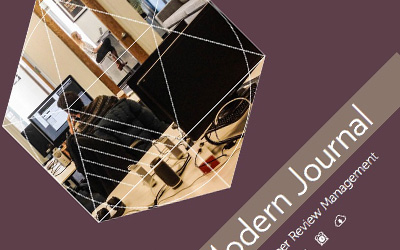
In recent years there has been much debate in academia regarding the institution of peer review. While some argue that formal pre-publication peer review is the bedrock of sound scholarly publishing, others feel the current peer review system is imperfect, slow, subject to bias, and in need of improvement.
While many individuals have shared their thoughts on the state of the predominant peer review system via academic articles, blogs, and popular media, there have not been many instances of widespread author surveys on the topic. To help bridge this gap, Editage, a research publication support service for authors, recently launched a survey titled “Author Perspectives on the Academic Publishing Process.”
Clarinda Cerejo, editor-in-chief of Editage Insights, Editage’s resources website for authors and journals, said the survey’s aim is to give industry influencers a broader window into the opinions of authors.
“Since authors are at the heart of the publishing system, we think that getting views from them globally will really get industry influencers to think about what’s broken from an author’s point of view, and help make the system more author friendly,” she said.
In the interview below, Cerejo shares more details about the survey and how authors have responded to it so far.
Q&A with Clarinda Cerejo
What was the impetus for launching the “Author perspectives on the academic publishing process” survey?
CC: We (Editage and Editage Insights) work a lot with authors, and their needs form the focal point of our activities. There’s been a lot of conversation in the industry about what’s broken in peer review, but we find that the people participating in these discussions are often more aligned with the journal/publisher perspective. Somehow the voices of authors, especially non-native English speaking authors, do not seem to be captured enough. From author questions we receive on Editage Insights, we have a fair sense of what aspects authors like and dislike about the publishing process. The survey could give publishers validation for the things they’re doing right. At the same time, it’s possible that some of the things that authors think need fixing in the system are quite basic and in fact easily fixable. If we could capture authors’ opinions on a large scale and present them to publishers and influencers, we might be able to make changes in the system to make it more author friendly.
What aspects of the author experience does the survey cover? What key areas do you hope to gain insights on?
CC: It has questions regarding pretty much all stages of the publication process - manuscript preparation, journal selection, communicating with journals and peer reviewers, and awaiting decisions - and also touches upon open access, publication ethics, and peer review. The idea is to get a sense of how happy authors are with the current system and what aspects, if any, they find most frustrating. We’ve left sufficient room for free comment to capture aspects we weren’t able to cover specifically within the survey questions and options. We’re running the survey in multiple languages (English, Chinese, Japanese, Korean, and Portuguese), so it will also be interesting to analyse geographic patterns in responses.
What are your goals for the survey? What do you plan to do with the results?
CC: The singular ultimate goal, as mentioned above, is to make the publishing system more author friendly. In general, publishers have started focusing more on author needs in the last couple of years. For example, many publishers have incorporated author support services into their workflows, so we know that publishers would really like to hear authors’ opinions and will probably act on them as well. We believe that the survey can get the whole industry thinking more about the author. We plan to disseminate the results as widely as possible. We’ll publish the survey report and also share the results at various industry conferences over the year.
How many responses have you gotten so far? Are you seeing any patterns in the responses?
CC: We have over 800 responses so far, including all languages. We have respondents from over 70 countries and good representation from all subject areas. Most respondents identify themselves as authors. I’m wary of giving away too much, lest I introduce a bias for readers who will take the survey after reading this, but some of the responses are definitely surprising and the comments are extremely insightful. It’s clear that people have a lot to say about the publishing system, and they’re being quite free in sharing their views. We’ve also received emails from people saying they’re excited about the survey and hopeful for changes in the system.
In what ways do you think authors feel there is a gap between researchers and journal publishers? Do you think publishers are doing enough to address this gap and in what ways do you hope the survey will make a difference?
CC: In 2014, we published the results of two parallel surveys - one with East Asian authors and the other with journal editors. The results shed light on many gaps in the perspectives of the two segments; for example, authors stated that they understood publication ethics well, but journal editors thought that authors didn’t understand publication ethics. Similarly, journal editors thought their instructions for authors were well framed, while many authors thought that journal instructions are often unclear/incomplete. Authors across geographies and experience levels rarely get a chance to talk to editors and publishers, so there’s bound to be a gap in perspectives. I do think that publishers are now increasingly aware that such a gap exists and are trying to reach out to authors as much as possible. I think the survey will help, because with the kind of geographic reach we see it having, it will give editors/publishers a chance to view author opinions and perspectives that they would ordinarily never come across.









